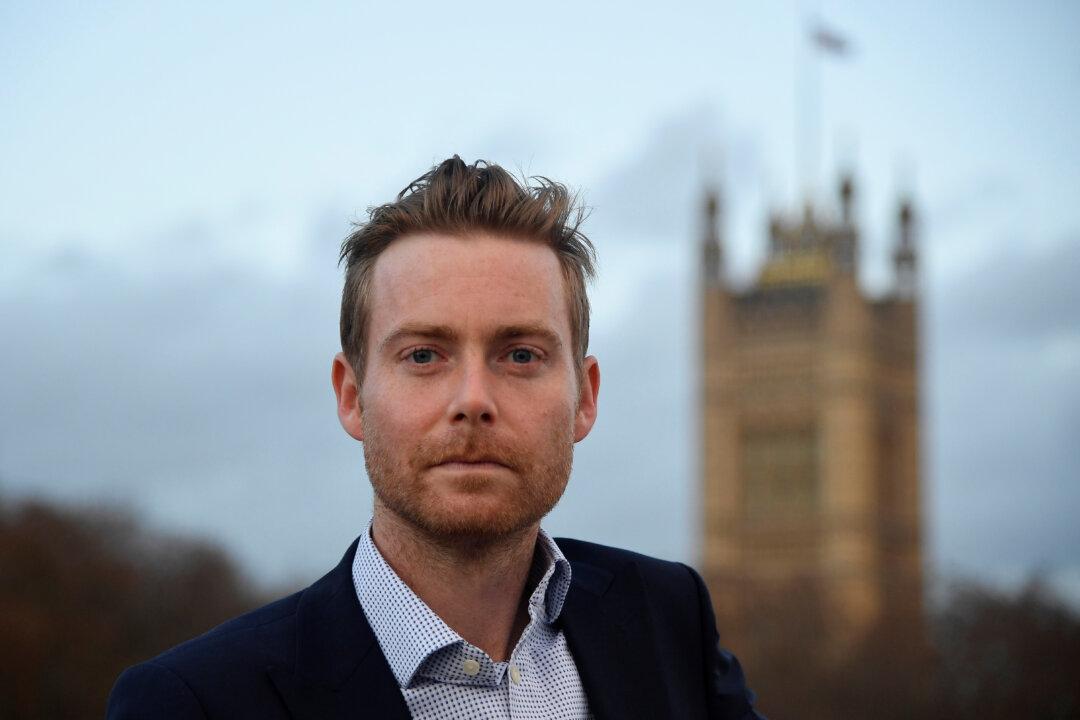LONDON—After losing the most contentious referendum in British history, James McGrory went for a drink in The Hope pub near London’s medieval meat market. Amid butchers in bloodied coats, his dream of reversing Brexit seemed hopeless.
Two years later, with the country in crisis over how or whether to leave the European Union, McGrory is feeling more confident that his campaign can help secure another referendum that he hopes would overturn the 2016 result.





